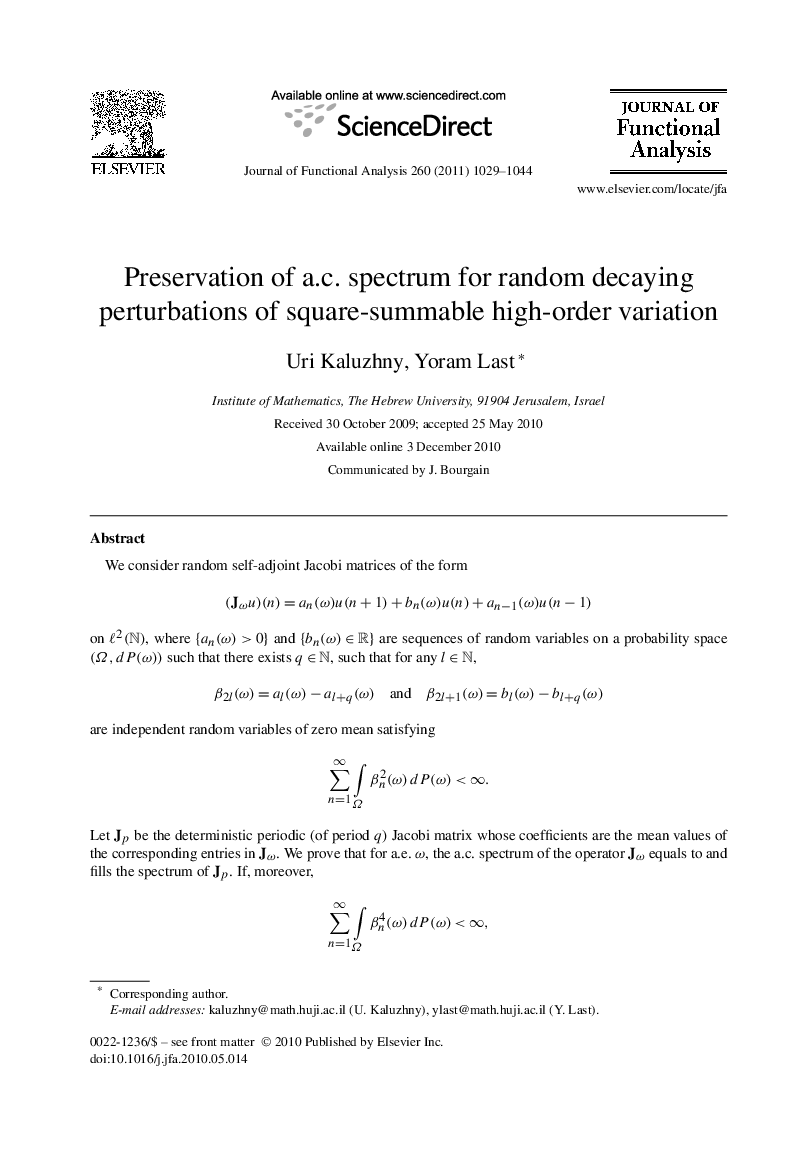| کد مقاله | کد نشریه | سال انتشار | مقاله انگلیسی | نسخه تمام متن |
|---|---|---|---|---|
| 4590925 | 1334995 | 2011 | 16 صفحه PDF | دانلود رایگان |

We consider random self-adjoint Jacobi matrices of the form(Jωu)(n)=an(ω)u(n+1)+bn(ω)u(n)+an−1(ω)u(n−1)(Jωu)(n)=an(ω)u(n+1)+bn(ω)u(n)+an−1(ω)u(n−1) on ℓ2(N)ℓ2(N), where {an(ω)>0}{an(ω)>0} and {bn(ω)∈R}{bn(ω)∈R} are sequences of random variables on a probability space (Ω,dP(ω))(Ω,dP(ω)) such that there exists q∈Nq∈N, such that for any l∈Nl∈N,β2l(ω)=al(ω)−al+q(ω)andβ2l+1(ω)=bl(ω)−bl+q(ω) are independent random variables of zero mean satisfying∑n=1∞∫Ωβn2(ω)dP(ω)<∞. Let JpJp be the deterministic periodic (of period q ) Jacobi matrix whose coefficients are the mean values of the corresponding entries in JωJω. We prove that for a.e. ω , the a.c. spectrum of the operator JωJω equals to and fills the spectrum of JpJp. If, moreover,∑n=1∞∫Ωβn4(ω)dP(ω)<∞, then for a.e. ω , the spectrum of JωJω is purely absolutely continuous on the interior of the bands that make up the spectrum of JpJp.
Journal: Journal of Functional Analysis - Volume 260, Issue 4, 28 February 2011, Pages 1029–1044